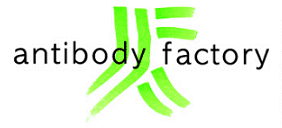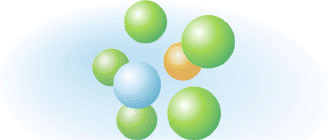 |
Antibodies are key reagents for functional characterization of the large number of gene products (ORF) yielded by the various genome projects and the research of the clinical networks. The production of binding reagents to these gene products is essential for a systematic study of expression patterns, intracellular distribution and complex formation of the respective proteins. However, animal based antibody generation is limited by the bottleneck of the in-vivo immune response. This is more than obvious when generating monoclonal antibodies to mouse or rat antigens. In contrast, in vitro methods do not have these limitations.
Therefore, the selection principle chosen in this SMP is antibody phage display. The method allows the generation of binders to highly conserved (non-immunogenic) molecules. Further, as the biochemical conditions during the very selection process can be controlled, antibodies to conformation mutants, e.g. after cofactor binding, can be obtained. In addition, minute variations in antigen structure can be discriminated, as a fine-tuning of specificity is possible, e.g. by adding a competitor during in vitro selection. The generation of antibodies to post-translational modifications (e.g. phosphorylation) can be attempted.
In four closely interconnected subprojects, the SMP will do research to establish a pipeline for the in vitro generation of antibody Fragments to various antigens. The SMP “Antibody Factory” will work towards three goals:
- First, a service function for the delivery of antibodies for research partners will be established, with the first antibody deliveries starting 6 months after project start.
- Second, a research element will focus on the development of novel antibody formats and panning procedures (on array) to both facilitate the selection process, thus improving throughput, and providing a “user-friendly” antibody format which is intended to be indistinguishable from IgG in the usual assays.
- Third, a set of antibodies against human transcription factors and signal molecules will be generated, with the final goal to use the antibodies both individually and on array.
In summary, we offer high throughput antibody generation for the needs of research, in particular to clinical networks and industrial partners.


